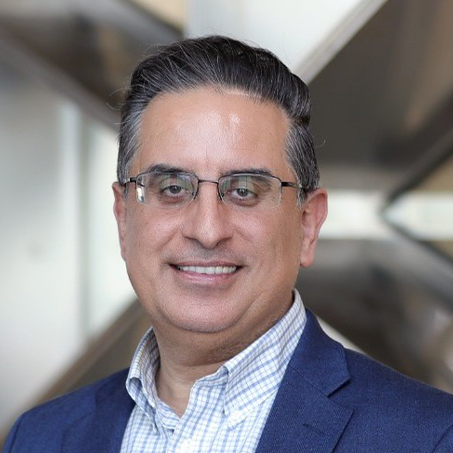
Husam N. Alshareef
Ibn Alhaytham Distinguished Professor , Materials Science and Applied Physics
Dean, Physical Science and Engineering
Chair, Center of Excellence for Renewable Energy and Storage Technologies (CREST)
“My group is developing various battery technologies for harsh environments and leveraging local materials and minerals for battery applications to ensure a secure supply chain for the Kingdom.”
Program Affiliations
Center of Excellence
Biography
Professor Husam Alshareef is as a leader in the field of materials science, with pioneering expertise in the development of nanoscale materials for energy and electronics applications. He joined KAUST in 2009 as a founding member, and currently serves as the chair of the KAUST Center of Excellence for Renewable Energy and Storage Technologies (CREST), and principal investigator of the Functional Nanomaterials & Devices Laboratory. Alshareef launched his career as a postdoctoral researcher at Sandia National Laboratories in New Mexico, USA, and subsequently held positions at Micron Technology and Texas Instruments, where he developed new materials and processes for integrated circuit fabrication. With more than 620 journal publications and 70,000 citations, he is recognized by the Web of Science and Clarivate Analytics as a highly cited researcher in material science, placing him in the top 1%of worldwide researchers for research output. Professor Alshareef is a fellow with multiple prestigious organizations, including the Materials Research Society, American Physical Society, Institute of Electrical and Electronics Engineers, U.S. National Academy of Inventors, UK Institute of Physics, Royal Society of Chemistry, and Institute of Materials, Minerals and Mining. He holds 80 issued patents, is the recipient of numerous awards, and sought as an invited speaker at conferences worldwide — accomplishments that reflect his extensive contributions to the field of materials science.
Research Interests
Professor Alshareef's research focuses on developing nanoscale materials for batteries and electronics, with increasing focus on translational activities. Recent investigations center on creating new battery chemistries for harsh environments, with higher energy density, lower cost and better safety. His is also leveraging local materials and minerals to develop next generation of batteries (Na-ion, solid-state, K-ion) to help secure the battery supply chain in the Kingdom. He is developing new sensors and X-ray imaging technologies for battery forensics and ani-tampering measures. In electronics, he develops MXenes and 2D materials for electronic devices.
Education Profile
Ph.D., Materials Science andEngineering, North Carolina StateUniversity, USA, 1995
M.Sc., Materials Science andEngineering, North Carolina StateUniversity, USA, 1992
B.Sc., Ceramics Engineering,Alfred University, USA, 1990
Awards and Recognitions
Publications
Research Areas
- Material Science and Engineering

